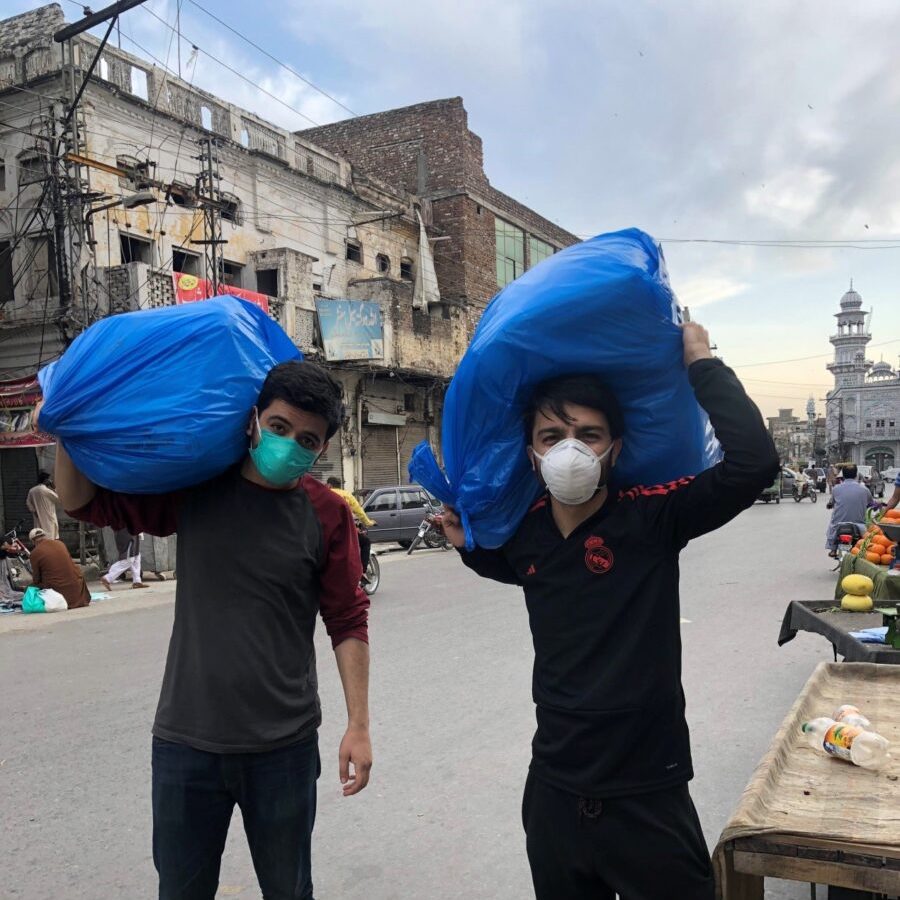In the first of a series, Rise Up Leaders from across the globe discuss the effects of COVID-19 on their communities and their work to advance gender equity.
We have been awed by the strength, courage, and innovation of Rise Up Leaders as they respond to the challenges presented by COVID-19. Their steadfast dedication to improving the lives of girls, youth, and women gives us hope, and we are honored to share some of their reflections on the impact of this pandemic. Over the coming months, we will continue to share more from Rise Up Leaders who are advancing health, education, justice, and equity around the world, both during this crisis and beyond.
Leader responses have been edited for length and clarity.
Robert Aseda | Kenya
Program Manager, Network for Adolescents and Youth of Africa
Rise Up Leader since 2016
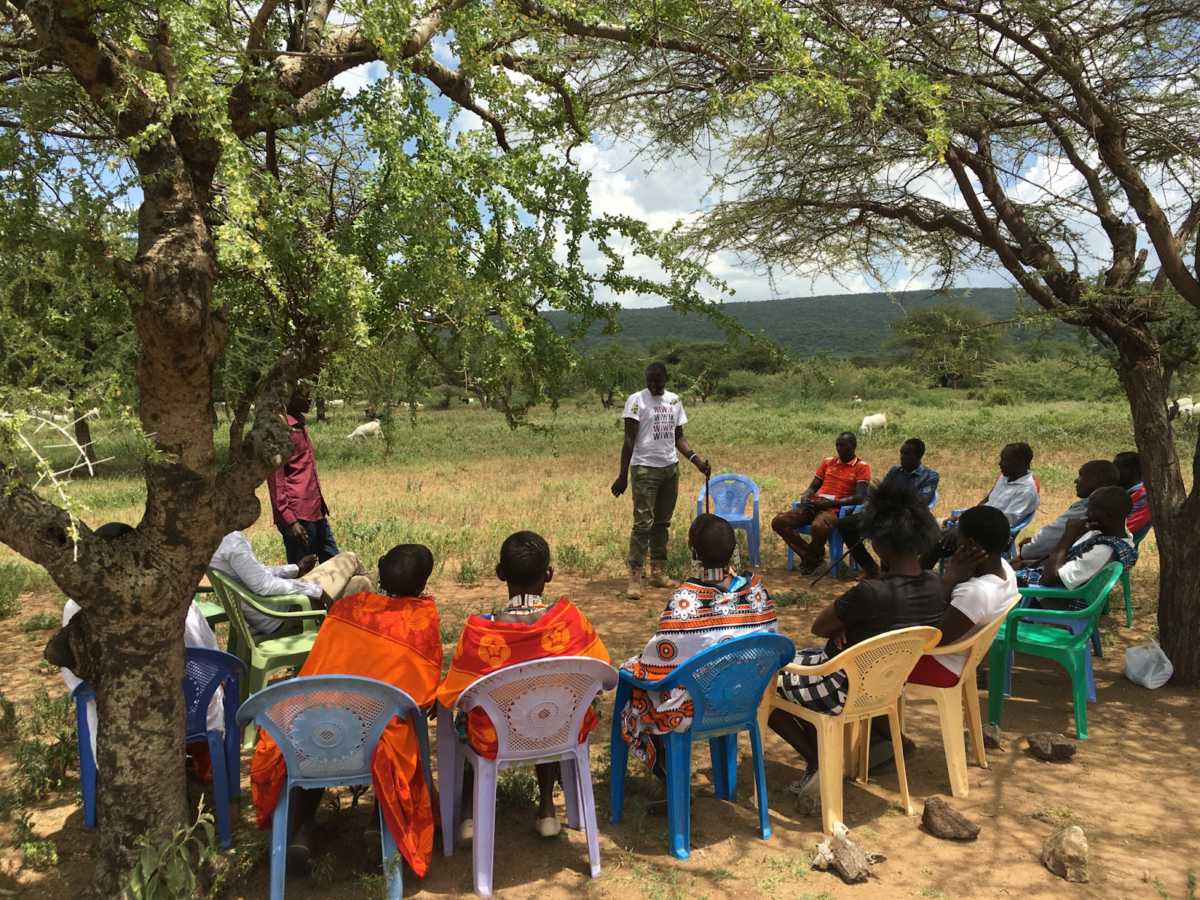
Photo provided by Rise Up Leader Robert Aseda of his work in Kenya before the pandemic began
“We have embraced technology and we are currently holding activities via digital applications from home. Lockdowns and curfews have affected our ability to adequately respond to violations of children’s rights, including female genital mutilation and child marriages. So we are currently collaborating with community-based organizations, champions, and local administrations to address these issues. We are also utilizing our media platforms to demonstrate the linkages between COVID-19, sexual and reproductive health and rights, and other girls’ rights issues. We are also holding regular online conversations and chats to identify potential solutions and presenting them to various policymakers and actors.”
“COVID-19 has revealed the interdependence and interrelatedness of human rights and we are recognizing how the right to security, for example, helps realize the right to health among others and how one sector’s challenges can affect other sectors. It has also opened our eyes to the added value of intersectionality and multisectoral collaboration in addressing issues including health challenges…”
Deepa Pawar | India
Founder and Director, Anubhuti
Rise Up Leader since 2018 (CIP)
“Girls and women are the first to be impacted during shortages of food. While they are the ones who take up the very difficult responsibility of procuring food for the family, they are also the first ones to go hungry. During the COVID-19 lockdown, there is a severe shortage of food in our communities because income stopped suddenly, and it is the women and girls who are bearing the brunt of hunger as well as the fear and despair about how to find food.”
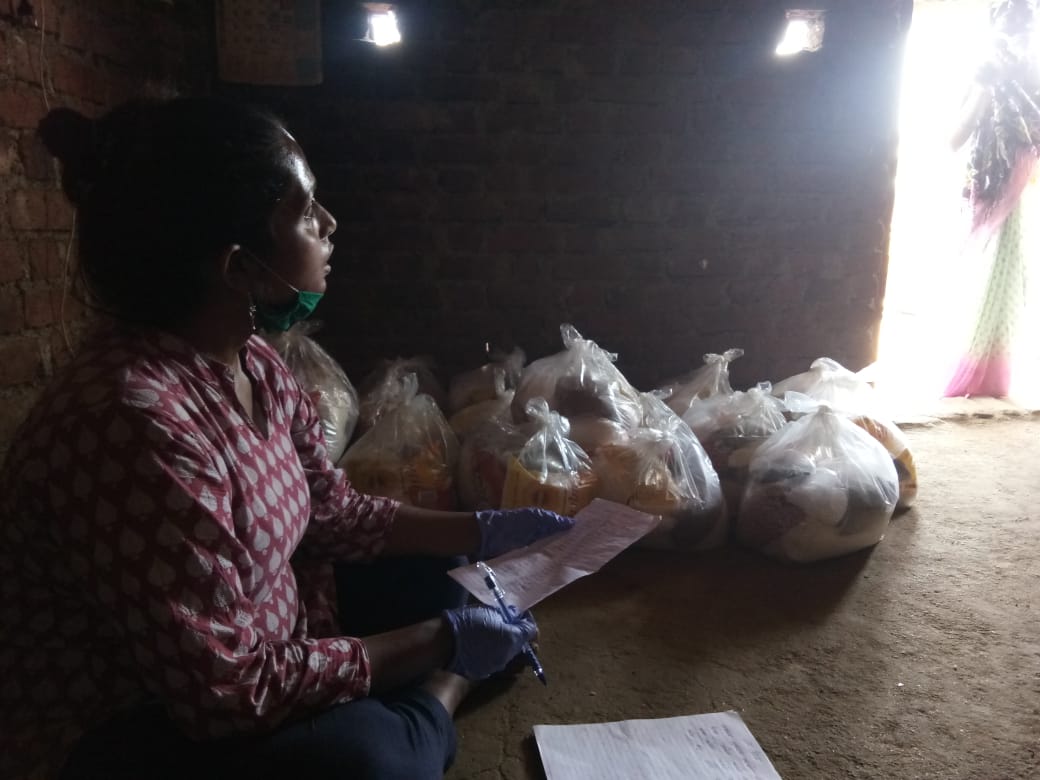
Rise Up Leader Deepa Pawar in India
“Our usual on-ground activities are paused and instead the entire team’s work has been directed towards response to the COVID-19 crisis…In emergency situations such as this, no counselling or training can work without solving the immediate question of hunger...So far, we have reached 470 families with food rations or direct bank transfers, 50 youth clients with on-phone counselling, and approximately 10,000 people with online campaigns for the rights of and justice for nomadic tribal communities during the crisis.”
Edith Romero | United States (Louisiana)
Health Educator, Luke’s House Clinic
Rise Up Leader since 2019
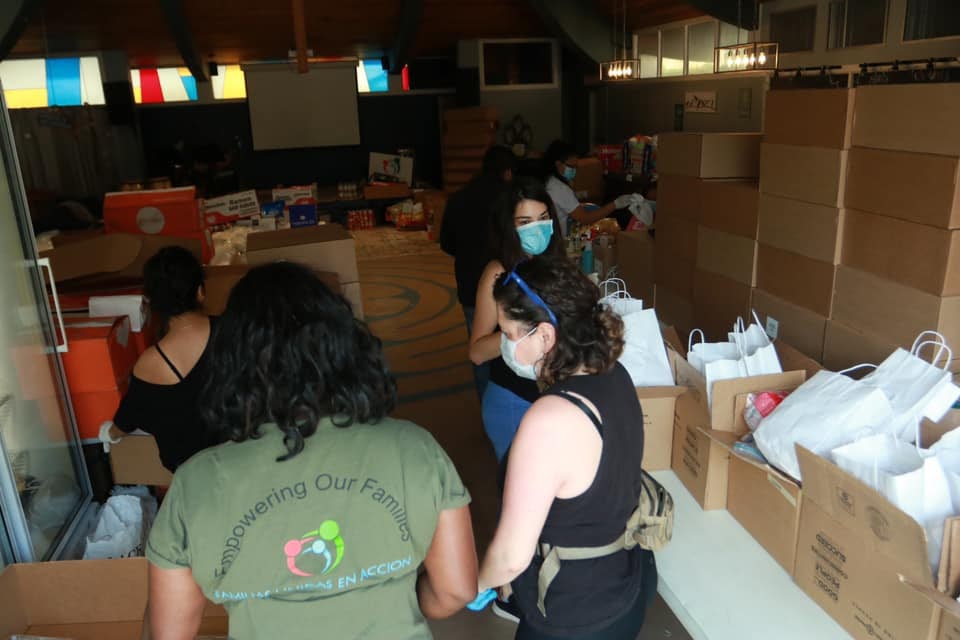
Rise Up Leader Edith Romero (top right) in Louisiana
“As a community, we have come together in solidarity to help our most vulnerable families by providing boxes of food, a Spanish resource guide, and the delivery of both directly to the families’ houses. Familias Unidas en Acción, an immigrant-led organization, has come together with other organizations, including Luke’s House Clinic, to package and distribute around 500+ boxes of food a week. I coordinate the packaging of the boxes, including the organization of ingredients, the roles of volunteers, and preparing the boxes for distribution. I created the much needed Spanish resource guide with information about COVID-19, tips to keep oneself healthy, and resources for mental health and housing assistance. I have also incorporated reproductive health resources in every box, including condoms and free emergency contraception for anyone that needs it…Solidarity is key in supporting our vulnerable communities – this means coming together out of love for each other and really listening to what our community needs as well as working together to create a safer, healthier, and caring community.”
Aisha Cooper Bruce | Liberia
Executive Director, Helping Our People Excel (HOPE)
Rise Up Leader since 2010
“In order to ensure that women continue to be heard and protected, HOPE partnered with the Organization for Women and Children to form the Women Leading in Crisis Alliance. The alliance works to ensure that women’s voices are fully incorporated into detection, prevention, and recovery mechanisms in response to COVID-19 and any other national crises that arise in the future. We are advocating to ensure that women leaders and groups are intentionally and consistently involved in national policy spaces. We are building the capacity of local women to lead in their communities. We will draw from our experiences in community response during the Ebola crisis and national-level advocacy.”
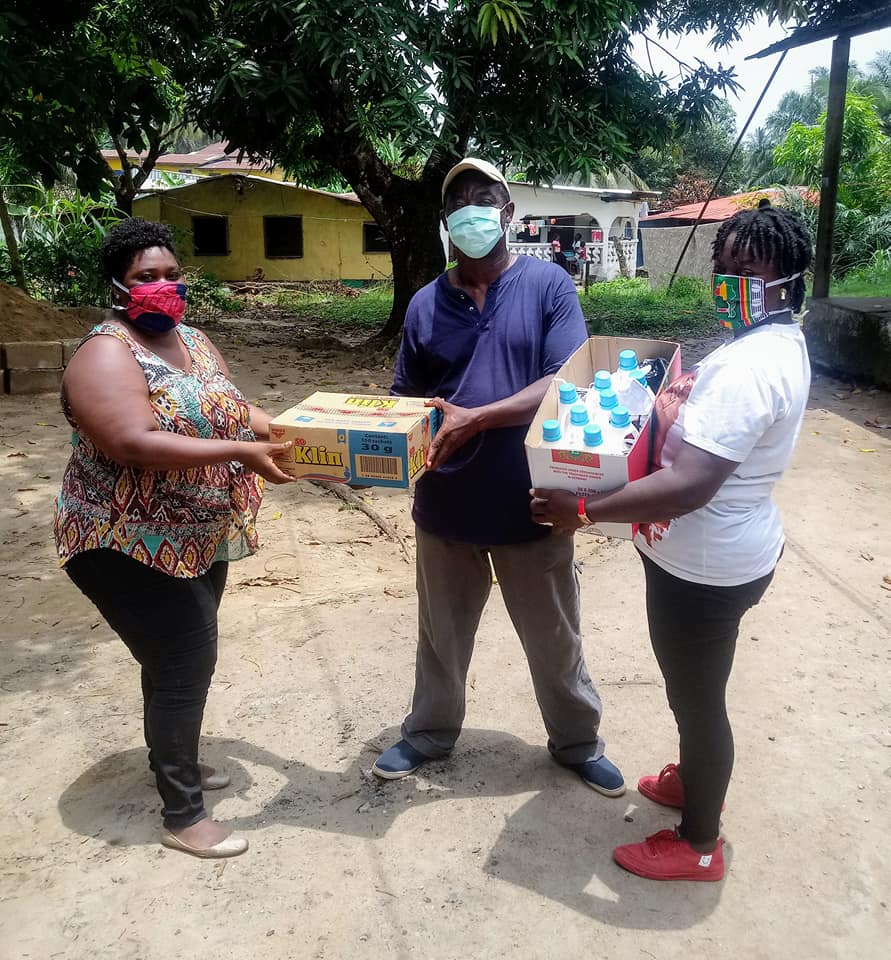
Rise Up Leader Aisha Cooper Bruce (left) in Liberia
“Women’s voices are crucial in responding to crisis. Our roles in our communities position us to identify local trends that can signal the start of an outbreak, improving outbreak preparedness and response. The effectiveness of the COVID-19 response absolutely depends on an approach that leverages our insights into our health, safety and economic needs, as well as the needs of men, children, and our communities at large.”
Juany Garcia Perez | Guatemala
Guatemala Country Coordinator, Rise Up
Rise Up Leader since 2009
“COVID-19 is affecting girls, adolescents, and women in Guatemala in very drastic ways, putting their mental and physical health at risk. These impacts motivated Red Departamental Las Niñas Lideran in Quetzaltenango, Guatemala, to launch a campaign to prevent violence, taking advantage of technology, and being creative to generate ideas in these moments of crisis.”

Rise Up Leader and Guatemala Country Coordinator Juany Garcia Perez (top right) in virtual meeting with Girl Leaders
Benjamin Yunana Maigaro | Nigeria
Program Manager, Africa Media Development Foundation
Rise Up Leader since 2018
“In responding to the pandemic, bad information spread quickly and was a major hindrance to getting communities to cooperate with efforts to detect and slow the spread of the disease, so we are aggressively pushing back against rumors and disinformation with frequent, fact-based communication.”
Mary Kate Bacalo | United States (California)
Director of External Affairs and Policy, Compass Family Services
Rise Up Leader since 2019
“What I think we are seeing is that when we don’t treat housing as healthcare everybody goes down. The shelter system is really fragile because of the way we have built our homeless response system. There are people who work at one shelter and sleep in another…We’re all interconnected, so it matters where we all live and the conditions in which we all live matter for all of us. We need to do a lot more thinking about how we uplift people in all of this and how we come out of this in a healthy way. It’s really clear right now that there are really serious consequences of decades of bad housing policy.”
Ehsam Ullah Baig | Pakistan
Founder, Pakistan Innovation Summit for Education (PISE)
Rise Up Leader since 2019
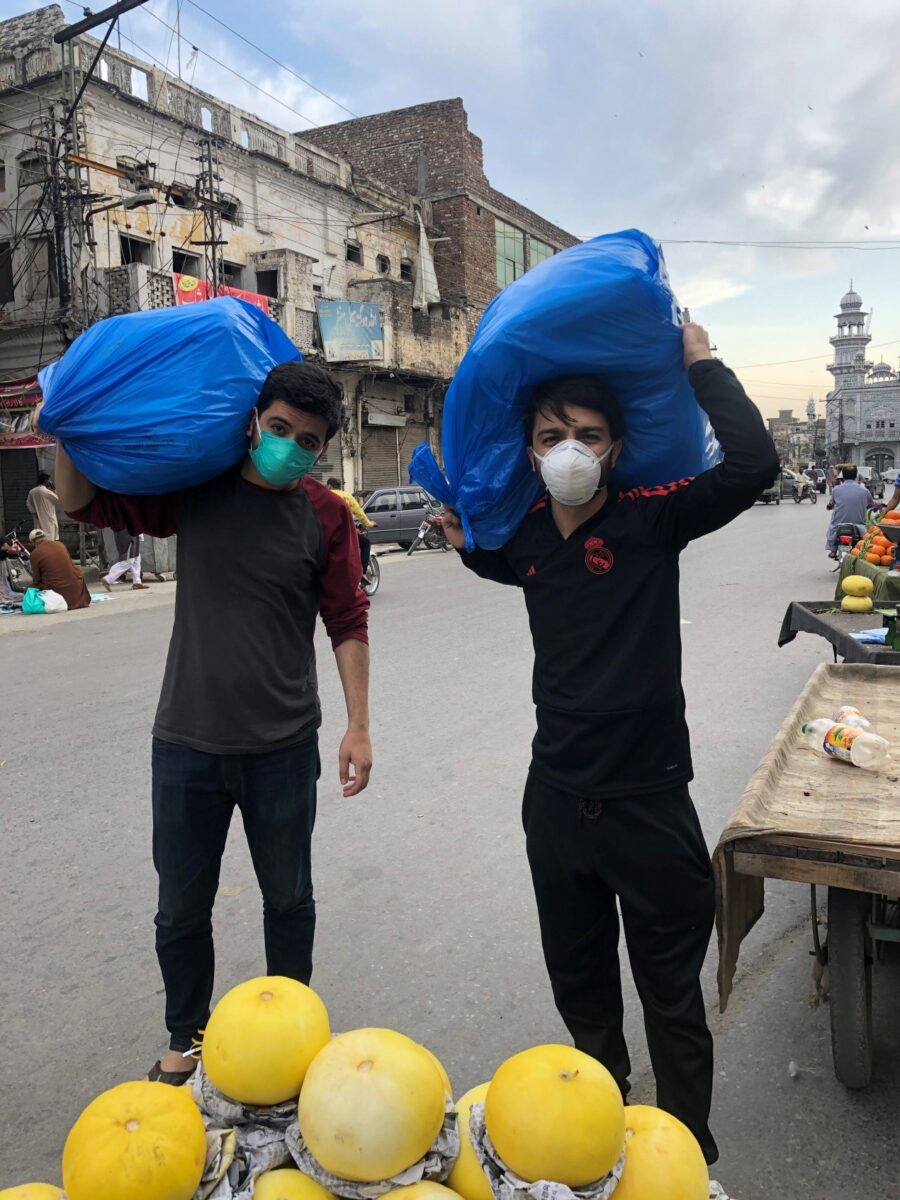
Rise Up Leader Ehsam Ullah Baig (right) in Pakistan
“PISE initiated a ration drive for the COVID-19 affected families in Nagar Valley of Gilgit-Baltistan, which is the epicenter of the crisis in our region. Around 250 affected families were reached and received rations. We were also able to provide Personal Protective Equipment (PPEs) for around 600 medical staff, para-medics, and rescue teams in Gilgit-Baltistan and Islamabad/Rawalpindi. Our team is also actively volunteering in the capital with the city police to raise awareness of COVID-19 and its prevention.”
Marcela García Vázquez | México
President, Nueva Luna Salud de las Mujeres A.C.
Rise Up Leader since 2018
“In response to the COVID pandemic, Nueva Luna implemented a service for survivors of violence against women where we provide legal advice and psychological care through WhatsApp and phone calls. If necessary, we channel these calls to the appropriate governmental bodies…We also established a network with indigenous women through WhatsApp that we use to know what is happening in their communities and how they are facing the pandemic.”
Abraham Manguwo | Malawi
Executive Director, Foundation for Rural Development (FORUD)
Rise Up Leader since 2018
“Barriers to implementing basic hygiene measures, such as frequent hand washing, may encourage the spread of the disease. FORUD is sensitizing community members to sanitize, observe social distance, and seek medical help if they suspect symptoms related to COVID-19.”
Madhuri Dinesh Deshkar | India
Regional Coordinator, Om Ganeshaal Institute
Rise Up Leader since 2018 (CIP)
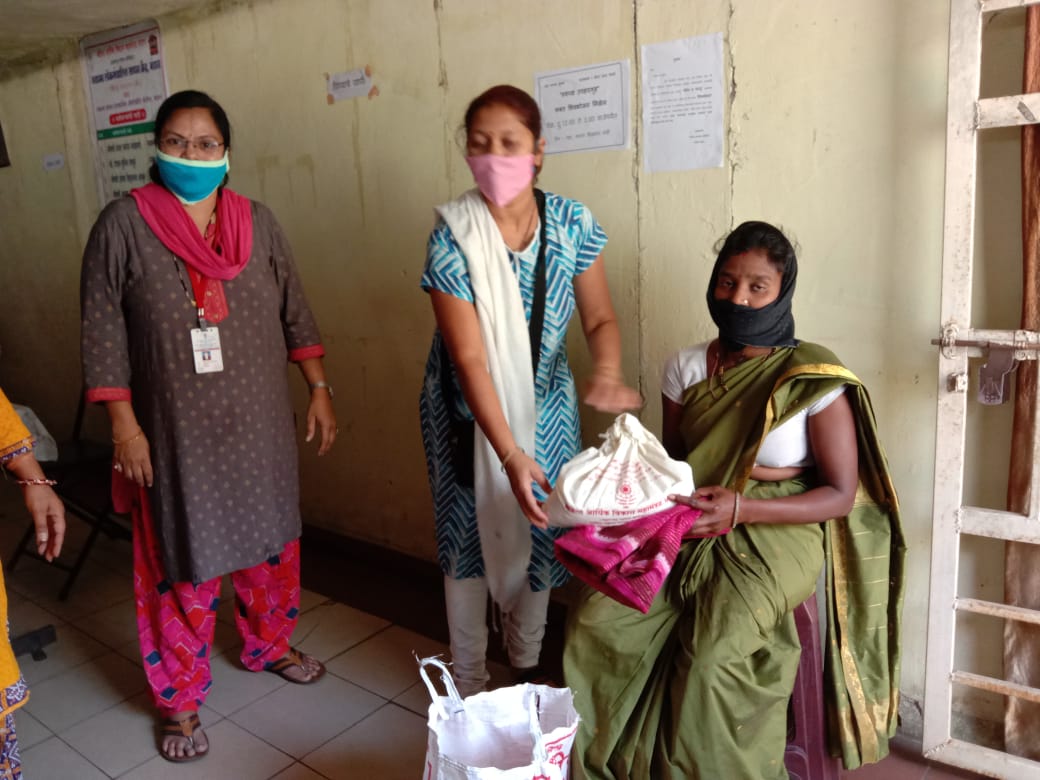
Rise Up Leader Madhuri Dinesh Deshkar (center) in India
“I want everyone to know the conditions in Indian rural areas. Here the conditions are worse because most people do not have secure jobs and they work for daily wages. I want everyone to know about what’s going on here. And no one has come to be a helping hand…Here we are taking care of ourselves and others in society, but the work is incomplete.”
Loani Salvador Castillo | Honduras
Project Coordinator, Asociación Un Mundo
Rise Up Leader since 2020
“What we have learned during this global pandemic is about the level of commitment that we must have to the work we do to support adolescent girls. Regardless of the circumstances, we have to find a way to continue our work, creating and innovating our methods to be applicable to the context in which we work. We have adapted our work by providing handbooks, which we deposit in a mailbox strategically placed in communities, where adolescent girls can find a weekly lesson plan to carry out, including relevant stories and crucial information on COVID-19.”
Ntokozo Madlala | South Africa
Senior Programs Manager, Project Empower
Rise Up Leader since 2020
“The impact of COVID-19 for youth, girls, and women from the informal settlements is extreme. The first struggle is poverty…Basic things like sanitizers and masks were not things they could worry about when they had no food to sustain themselves.”
“No matter how fragmented we are, we are all part of the bigger and global community. No country can combat this pandemic alone. This is the wake-up call to form strong allies and have a global movement that prioritizes women’s and girls’ issues and that is going to rise up for women and girls in moments like this.”

